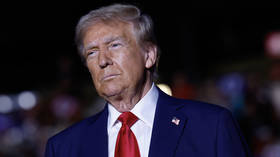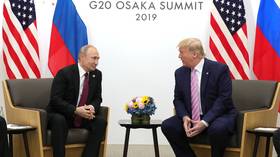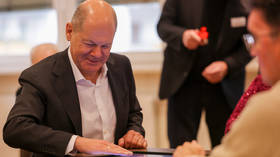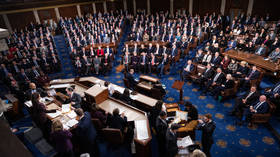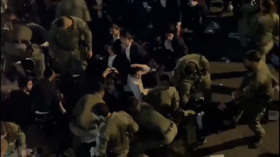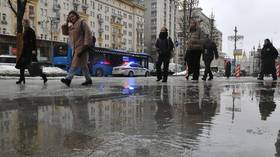‘Japan wants to spread military wings in way it hasn’t for decades’
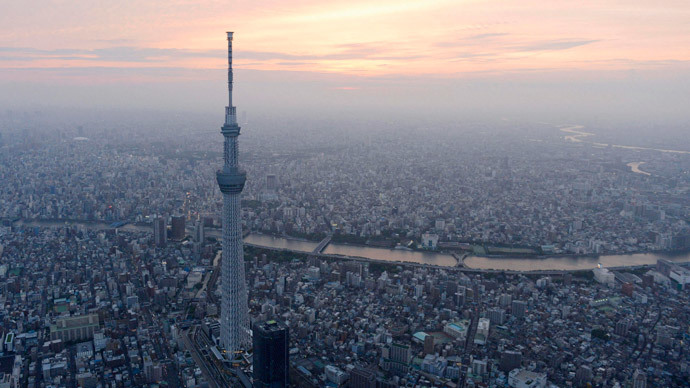
Shinzo Abe’s constitution amendments are designed to pair Japan militarily with other countries, which should develop stronger defense ties and make it more effective, RMIT lecturer Binoy Kampmark told RT.
RT:Japan has relaxed its self-imposed ban on weapons exports. Is this just about profit or is there more to it?
Binoy Kampmark: I think at the basis of this particular relaxation is an attempt by Japan to be more militarily involved in the region. Part of this is the constitutional injunction about military involvement. It’s based largely on how it interprets the constitution. Shinzo Abe has made it very clear that he wants a more flexible interpretation, which involves a broader concept of collective self-defense. And in a sense these particular deals that are being done, the Australian deals specifically, is an example of how Japan wants to spread its wings in the way that it hasn’t done for decades.
RT:China has several ongoing territorial disputes with south-east Asian countries, and Japan's prime minister recently promised them support in those disputes. Are we seeing an increasingly confrontational attitude to Beijing?
BK: There are a couple of things here. The one is the increasingly confrontational attitude, the other step we are essentially seeing [is that] the Asia-Pacific region is largely becoming increasingly unstable, it is becoming the focal point of an arms race, we are seeing countries engaging into hostilities on a low level, but certainly tensions are there. And we are seeing a greater effect of the US presence and an attempt by Washington to bolster the alliances in the region, and Japan of course is fundamental to it.
Japan, in fact, is one of the key powers in this repositioning of the interests in the region, and of course a rising China, China’s attempts to build and reinforce its navy and presence in the Pacific as an example of that.
RT:Australia is considering buying military technology, including possibly a warship, from Japan, as it rises military spending up 6.1 percent this year. What threats is Australia trying to defend itself against?
BK: Not very much, I think. At the end of the day the threats to Australia are always on the minimal side. What Australia is hoping to do is to essentially solidify its role in the alliances with Japan and the US. It is considered an important country in the region in terms of bolstering and the presence to counter rising China. The other aspect is that Japanese technologies are regarded as very reliable. The Australians’ supposed stealth fleet of submarines is not particularly stealthy, I’m afraid. And what tends to happen here is that these particular agreements are going to, on the one hand, provide Australia with state-of-the-art technology - that’s at least in theory. But on the other hand, it is going also to provide a boost to Japanese arms manufacturers, and that is the other aspect of ‘Abenomics’ – this idea of Shinzo Abe's bolstering the Japanese economy.
RT:The US has also been looking to bolster its military capability in the Asia-Pacific - the so-called Asia pivot - are Tokyo and Washington hand in hand on this?
BK: It is certainly very clear that the Obama Administration and Mr. Abe are very much at one on this. A lot of it is to essentially clarify the current arrangements in terms of what Japan can do if it was to be confronted with the situation of engaging a hostile force, [there is no] no secret about hostile forces envisaged to be impossible Chinese threat. And why of the reasons why the relationship is being brought into view now is what will happen, for example, if a US vessel might be attacked by a Chinese missile, what would be Japan’s role in it if it was in the region. Japan, the idea according to the new interpretation of the Constitution that Shinzo Abe wants, will be based upon engaging the threat in such a way that it will enable it to defend, not just itself, but also against the threat to an ally. So this is very much a significant development.
RT:Japan is considering whether to amend its constitution (Article 9) to allow war as a means of settling international disputes. Do you think this will happen? And what would the implications be?
BK: Very significant, and of course it is going to be significant in the sense that countries in the region who feel that Japan has not been exactly pulling its weight in terms of atoning for its past, will certainly be able to make hay out of this, and the Chinese government is no exception on this. That is one thing. The second thing is in sense that is going to clarify in some ways what Japan’s defense forces can do since the creation of the so-called self-defense forces in 1950s. It has always been allowed to defense itself in any case, it’s not an unusual thing, but engaging other forces in this manner will be significant. And that will be a significant change because it will mean that it will actually be militarily paired with other countries, which is extensively develop to stronger defense ties and making it more effective.
The statements, views and opinions expressed in this column are solely those of the author and do not necessarily represent those of RT.
The statements, views and opinions expressed in this column are solely those of the author and do not necessarily represent those of RT.


